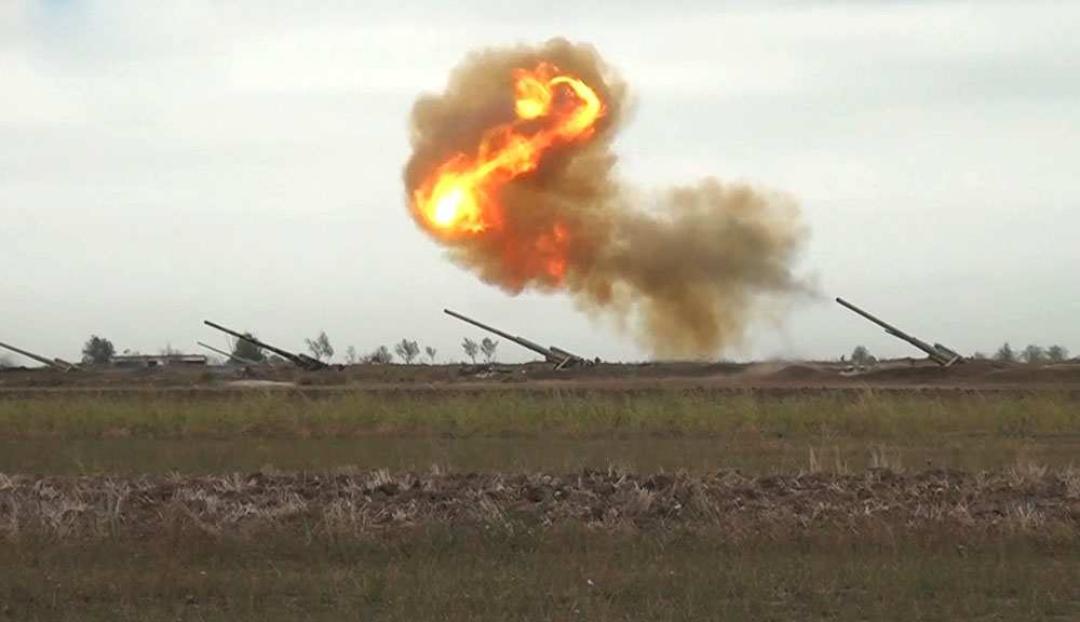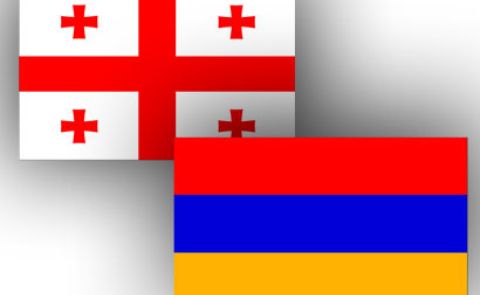
Military operations in Nagorno-Karabakh and their possible consequences for Georgia

The events that have unfolded in recent days (since September 26) on the territory of Nagorno-Karabakh are causing concern throughout the world, in the region and in the countries directly involved in the conflict. There is conflicting information about the hostilities, but this article is about something else. If the participants solve their problems at their own peril and risk, there is a state that will have little from this and can lose a lot. This is Georgia.
How can events unfold? Provided there is no outside interference, based on the military capabilities of the parties, the hostilities can drag on for a long time. Azerbaijan will not risk (dare) to transfer them to the territory of Armenia, in order to avoid the risk of inclusion in the conflict of the CSTO states (count Russia). It is also unlikely that the mass use of means of fire destruction of settlements is unlikely, in order to avoid casualties among the civilian population, which would cause a negative reaction from global and regional players. This would prevent the Azerbaijani leadership from achieving its goals, which were mentioned by Azerbaijani President Ilham Aliyev.
On the other hand, the development of events in this vein, taking into account the nature of the territory of Nagorno-Karabakh, the degree of its preparation for conducting defensive operations, the level of training of the Karabakh Army and the units located there from outside, can become a decisive factor in the long engagement of the Azerbaijani Armed Forces in hostilities. This option could cause a negative reaction throughout the world and push the world community to more active intervention, which will play into the hands of the Armenian leadership in its desire to restore the status quo. Although, if the Azerbaijani Armed Forces have significant successes, this may result in a new distribution of territories in favor of Azerbaijan, for example, a complete or partial loss of Armenia's control over Azerbaijani territories outside Nagorno-Karabakh. Such a development of events may suit the Azerbaijani leadership and external players, including Russia, which can use this against the current Armenian leadership and facilitate the change of power in Armenia to a more loyal one.
If attempts are made to intervene from outside, the conflict can grow into an unpredictable and threatening form for the entire region. Turkey has already announced its support to Azerbaijan, but such a development of events is unlikely if certain conditions are not formed for this. Such conditions can be: the transfer of hostilities to the territory of Azerbaijan and the intervention of other countries and such a country can be Russia. The likelihood of intervention by other countries, including the CSTO member states in hostilities - is very low.
The Russian Federation can go for direct or indirect intervention also under certain conditions, such as: the decisive success of Azerbaijan and a possible solution of the Karabakh issue in its favor, the transfer of hostilities on the territory of Armenia, active intervention from outside.
As we can see, there is a certain probability of intervention in the conflict from abroad. Intervention can take the form of both military consultants and support with weapons, ammunition and other materiel, which is especially important for Armenia.
This can be done by the Russian Federation or the Turkish Republic. These countries do not have a land border with their allies, instead they got borders with opponents of their allies, however the warfare on the Russian-Azerbaijani and Turkish-Armenian borders is extremely unlikely, as well as the direct use of Russia’s or Turkey’s armed force units in other areas.
Russia may demand the Georgian government to pass military and humanitarian supplies through Georgia. The passage of Russian military cargo will be unacceptable for the Georgian leadership. This will cause an extremely negative reaction among the population, which may serve as a pretext for uncontrolled actions on the part of the residents of the areas where the Russian militaries and cargo passes. There can also be provocative actions. Moreover, the overland routes for the passage of the columns for this purpose are very vulnerable. As for the air corridor - Georgia will most likely also deny the passage of military cargo for both countries, but this may not stop Russia and the airlifts will be carried out. Such facts have taken place in the past. In this case, there is a high probability that, Georgia will not be able to actively prevent flights over its territory for fear of consequences without external diplomatic support. If the Georgian territory or airspace is used by the Russian Federation to provide assistance to Armenia, Georgia will be forced to allow the same for Turkey.
In such a scenario of the development of events, the scale of hostilities can grow several times, there are also no guarantees of their soon completion, rather the opposite, since the success or failure of the direct participants in the conflict will be regarded as the success or failure of their allies.
Russia, which considers itself a global power and Turkey that has made great efforts lately to advance and strengthen its leadership position in the Muslim world and in the region - both will try to prevent this in any way.
Based on the ambitions of these country leaders, events can develop in an unpredictable manner.
According to our conclusion, if the conflict is not stopped in the coming days, there is a high probability of its prolonged stretching and the involvement of forces from outside in it. This interference may not be direct, but it will certainly affect Georgia. The parties will try to use its territory and airspace for logistic communication with the allies. This circumstance, as well as the long-term conduct of combat, may cause the involvement of Georgian citizens of Armenian and Azerbaijani nationalities in these actions and subsequently, its possible transfer (transfer of hostilities) to the territory of Georgia itself. After all, the country has clearly distinguished territories with Armenian and Azerbaijani populations and these territories are adjacent to the belligerent countries. Thus, Georgia may suffer no less than the countries directly fighting now. And this will be a blow to its transit function, the tourism industry and to the population in general.
Contributed by former Chief of J-3 Operative Planning Department of the General Staff, Brigadier General Giorgi Surmava.
See Also


3+3 Initiative as a New Order in the South Caucasus

Economic Cooperation Between Armenia and Georgia: Potential and Challenges Ahead

Russia and Occupied Abkhazia: A New Type of Relations

Georgia and US: From Close Ties to Caution

